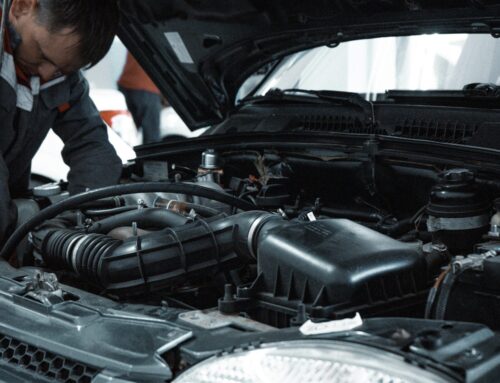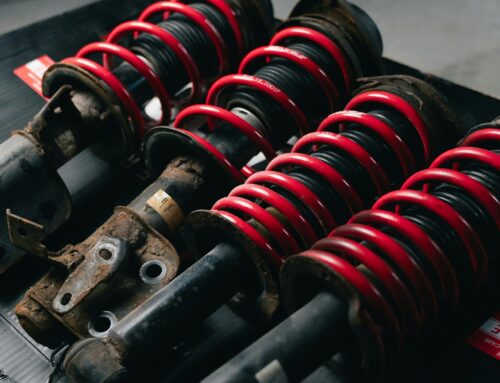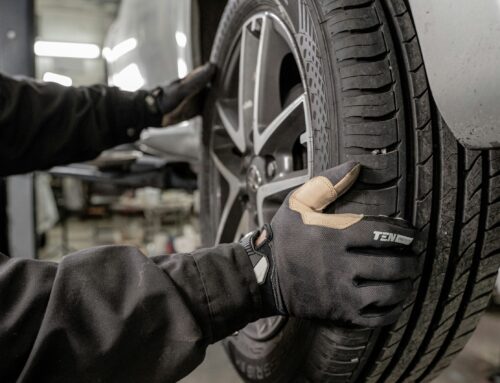Cold mornings, icy windscreens, and delayed starts – the Australian winters can catch even the most experienced drivers off guard. But beyond the discomfort and inconvenience, cold weather can become a serious factor in how your vehicle performs. Understanding how the cold affects your car can help you avoid costly issues, stay safe on the road, and keep your car running smoothly all season long.
This guide will break down how the cold impacts your car’s battery, engine, suspension, sensors, and even fuel economy. We’ll also share practical tips to prepare your car for colder conditions and when to visit Ultra Tune for a check-up.
The Impact Of Cold Weather On A Car
Cold weather can significantly impact a car’s performance due to the way low temperatures affect various mechanical and electronic systems. As the temperature drops, engine oil thickens, making it harder for the engine to turn over and increasing wear during startup. Batteries lose power more quickly in cold weather, with cranking power dropping by as much as 35% at 0°C and up to 60% at -17°C.
Tyre pressure also decreases as air contracts in the cold, this can reduce traction and increase rolling resistance. Additionally, the cold temperatures can stiffen suspension components and cause sensors, such as those monitoring tyre pressure or engine systems, to become less responsive or trigger warning lights. These combined effects mean that a vehicle in cold conditions requires more energy to operate efficiently and may be more prone to starting issues, reduced fuel economy, and safety concerns.
Can Cold Weather Affect A Car Battery?
Yes, it definitely can! Your car battery is often the first to feel the effects of the cold. Low temperatures slow down the chemical reactions inside the battery, making it harder to generate enough power to start the engine. This is even more concerning for older or worn-out batteries.
Cold Temperatures:
- Reduce battery capacity
- Increase demand for lights and heating systems, which strains the battery
- Batteries over 3 years old are at greater risk of failure
- Losing extended battery life
Tip: Get your battery tested by your local mechanic before winter hits to avoid unexpected breakdowns.
Can The Cold Weather Kill A Car Battery?
Believe it or not, it absolutely can! In freezing conditions, a weak battery can significantly stress a car battery and potentially cause long-term damage, especially if your car has been sitting unused for a while. If your car won’t start in cold weather, a dead battery is likely the culprit.
Starting A Car In Cold Weather
Here are a few quick tips on how to start a car in cold weather:
- Turn off lights, heaters and other electronics before starting
- Pump the brake gently to loosen it up
- If it doesn’t start in a few tries, avoid flooding the engine – call for assistance
Can Cold Weather Affect Car Sensors?
Modern vehicles are filled with electronic sensors that help manage everything from tyre pressure to traction control. Unfortunately, cold temperatures can interfere with these sensors:
- Moisture, ice buildup and blockage can lead to false readings
- Cold can slow down the response times of sensors
- Tyre Pressure Monitoring Systems (TPMS) may light up due to low air pressure in the
cold air outside
Tip: If warning lights pop up more frequently in winter, have your sensors checked.
How Does Cold Weather Affect Car Engines?
Cold weather causes oil to thicken, which can delay proper lubrication when the engine starts. This creates more friction and wear, and makes your engine work harder. Short trips during winter also mean the engine may not reach optimal operating temperature.
- Thicker oil = harder starts
- Delayed warming affects engine efficiency
- Increased wear on components over time
Tip: Use high-quality oil suited for colder temperatures and consider an oil replacement or service.
How Does Cold Weather Affect A Car’s Suspension?
Yes, cold weather can highlight existing issues in your suspension system. When temperatures drop, rubber bushings can seal to shrink, making squealing noises, changing the feel of your ride.
- Bumps feel more jarring in cold weather
- Noises or clunks could mean worn shocks or mounts
- Cold exposes pre-existing damage
Tip: Book a suspension and shock absorber inspection if your ride feels unusually harsh during winter.
Does Cold Weather Affect Fuel Economy?
Surprisingly, yes. If you’ve noticed changes in fuel economy in cold weather, you’re not alone. This is a common seasonal effect. Cold temperatures can reduce your vehicle’s fuel efficiency due to several factors:
- Lower air pressure in tyres increases rolling resistance
- Engines take longer to reach fuel-efficient temperatures
- More idling time and increased use of heaters, defoggers
Tip: If your car’s fuel efficiency experiences major changes, there may be an issue with the engine. Take it to get looked at immediately.
Does Cold Weather Affect Electric Cars?
Yes, electric vehicles (EVs) are also impacted by low temperatures. Cold slows down battery discharge and reduces the overall range. Additionally, running the heater in an EV draws directly from the battery.
● Slower charging and reduced driving range
● Cabin heating impacts battery drain
● Plan shorter trips or more frequent charges in winter
Tip: Precondition your EV while it’s still plugged in to reduce battery usage.
Prepare Your Vehicle For The Cold Weather With Ultra Tune
Don’t wait for your car to show signs of winter fatigue. Book an inspection with Ultra Tune and stay one step ahead of the cold. Our expert mechanics will test your battery, inspect your engine and suspension, and ensure your sensors are working as they should.
Don’t let the cold weather slow you and your car down! Contact us for more information.






